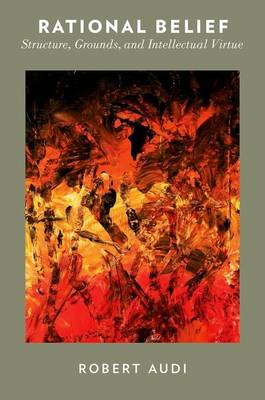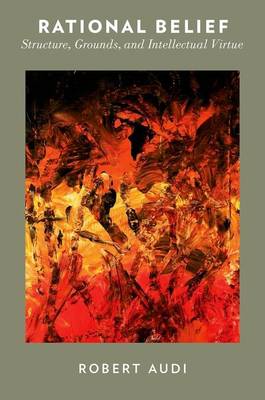
- Afhalen na 1 uur in een winkel met voorraad
- Gratis thuislevering in België vanaf € 30
- Ruim aanbod met 7 miljoen producten
- Afhalen na 1 uur in een winkel met voorraad
- Gratis thuislevering in België vanaf € 30
- Ruim aanbod met 7 miljoen producten
Zoeken
€ 69,45
+ 138 punten
Omschrijving
Rational Belief provides conceptions of belief and knowledge, offers a theory of how they are grounded, and connects them with the will and thereby with action, moral responsibility, and intellectual virtue. A unifying element is a commitment to representing epistemology-which is centrally concerned with belief-as integrated with a plausible philosophy of mind that does justice both to the nature of belief and to the conditions for its formation and regulation. Part One centers on belief and its relation to the will. It explores our control of our beliefs, and it describes several forms belief may take and shows how beliefs are connected with the world outside the mind. Part Two concerns normative aspects of epistemology, explores the nature of intellectual virtue, and presents a theory of moral perception. The book also offers a theory of the grounds of both justification and knowledge and shows how these grounds bear on the self-evident. Rationality is distinguished from justification; each clarified in relation to the other; and the epistemological importance of the phenomenal-for instance, of intuitional experience and other "private" aspects of mental life-is explored. The final section addresses social epistemology. It offers a theory of testimony as essential in human knowledge and a related account of the rational resolution of disagreements.
Specificaties
Betrokkenen
- Auteur(s):
- Uitgeverij:
Inhoud
- Aantal bladzijden:
- 296
- Taal:
- Engels
Eigenschappen
- Productcode (EAN):
- 9780190221836
- Verschijningsdatum:
- 3/08/2015
- Uitvoering:
- Paperback
- Formaat:
- Trade paperback (VS)
- Afmetingen:
- 155 mm x 236 mm
- Gewicht:
- 476 g

Alleen bij Standaard Boekhandel
+ 138 punten op je klantenkaart van Standaard Boekhandel
Beoordelingen
We publiceren alleen reviews die voldoen aan de voorwaarden voor reviews. Bekijk onze voorwaarden voor reviews.








